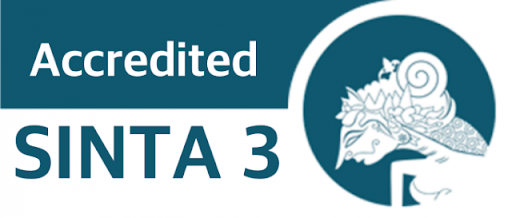Mosque As the Center of Economic Empowerment of the Millennial Generation in Garut Regency
DOI:
https://doi.org/10.37680/ijief.v3i2.5386Keywords:
Mosque; Economic Empowerment; Millennial GenerationAbstract
Mosques are the most important facilities for Muslims. There needs to be efforts by mosque administrators to make mosques the center of Muslim civilization, especially in efforts to empower the millennial generation. This research aims to analyze the role of mosques as centers for economic empowerment for the millennial generation in Garut Regency. The research method used is qualitative with a case study approach. Data collection was carried out through in-depth interviews, observation and documentation. The research results show that mosques have a strategic role in empowering the economy of the millennial generation in Garut Regency. Some of the roles of mosques include (1) Mosques as centers for creative economic activities, such as entrepreneurship training, business incubation, and promotion of MSME products; (2) Mosques as a place to distribute zakat, infaq and alms (ZIS) funds for the economic empowerment of the millennial generation; (3) Mosques as a space for collaboration and synergy between the millennial generation, mosque administrators and other stakeholders in developing economic empowerment programs; and (4) Mosques as centers for strengthening Islamic character and values that support the economic development of the millennial generation.
References
Akbar, D. L. (2020). Konsep Kesehatan dalam Al Qur’an dan Al Hadits Diong Liong Akbar. Al-Bayan:Jurnal Ilmu Al-Qur’an Dan Hadist, 3(2), 34–46.
Anwar, R. (2019). Dirjen Badan Peradilan Agama Mahkamah Agung RI. Retrieved Juli 4, 2023, from Dirjen Badan Peradilan Agama Mahkamah Agung RI:
Azhari, F. (2015). Qawaid Fiqhiyyah Muamalah. Lembaga Pemberdayaan Kualitas Ummat.
Badan Pusat Statistik. (2020). Statistik Pemuda Indonesia 2020. Badan Pusat Statistik.
Darmawan, D. (2020). Peran Masjid Bagi Generasi Millennial. KAHPI.
Dirjen Badan Peradilan Agama Mahkamah Agung RI. (2019). Badilag Mahkamah Agung. Retrieved Juli 4, 2023, from Badilag Mahkamah Agung RI:
Fakrurradhi. (2021). Prinsip Prinsip Ekonomi Islam Dalam Al-Qur’an Menurut Tafsir Ibnu Katsir. Institut Agama Islam Al-Aziziyah.
from Visit Garut: (n.d.). Dinas kependudukan dan pencatatan sipil kabupaten Garut. Retrieved January 4, 2023, from https://www.garutkab.go.id/page/jumlah-penduduk-berdasarkan-umur
Hayatika, A. H. (2021). Manajemen Pengumpulan Pendistribusian dan Penggunaan Dana Zakat oleh Badan Amil Zakat Nasional sebagai Upaya Peniongkatan Pemberdayaan Ekonomi Umat. UIN Raden Intan Lampung, 874-885.
Immanudin, M. D. (2022). Manajemen Masjid. Widina Bhakti Persada.
International Labour Organization. (2020). Global Employment Trends for Youth 2020: Technology and the Future of Jobs.
Isnaini Putra, M. (2020). Pemberdayaan Ekonomi Ummat berbasis Masjid. Mataram. Prodi Ekonomi Syari’ah FEBI UIN Mataram.
Lajnah Pentashihan Mushaf al-Qur’an. (2014). Tafsir al-Qur’an Tematik. Kamil Pustaka.
Ma’soem University. (2020). Ma’soem University. Retrieved Juli 4, 2023, from Ma’soem University: https://masoemuniversity.ac.id/berita/5-alasan-pentingnya-belajar-ekonomi-syariah.php.
Maryam, S. (2022). The Rise of Islamic Fintech: Empowering Millennial Muslims in the Digital Age. Journal of Islamic Banking and Finance, 2, 45–62.
Masjid Ar-Raudhah. (2018). Mosque Business Incubator. Diakses dari website resmi Masjid Ar-Raudhah, Singapura.
Mulyadi, d. (2021). Perawatan Interior Masjid dan Musholla.
Penelitian Mahasiswa Universitas Padjadjaran. (2021). Karakteristik Generasi Milenial di Kabupaten Garut. Jurnal Ilmiah Mahasiswa Universitas Padjadjaran, 2(3), 45–58.
Radiansyah, E. (2022). Peran Digitalisasi terhadap Kewirausahaan Digital Masa Depan. Sekolah Tinggi Ilmu Ekonomi Muhammadiyah.
Saeful, A. (2022). Konsep Memakmurkan Masjid dalam Perspektif al-Qur’an. Jakarta: Prodi IQT Fakultas Ushuluddin Insitut PTIQ Jakarta.
Sahla, D. F. (2023). Wikipedia. Retrieved Juli 4, 2023, from Wikipedia:
STIE PASIM. (2020). STIE PASIM. Retrieved Juli 4, 2023, from STIE PASIM: https://www.stiepasim.ac.id/pengertian-ilmu-ekonomi-menurut-para-ahli/
Susanta, G. d. (2008). Cara Cerdas Memakmurkan Masjid. Penebar Plus.
Thariq, P. (2017). The Role Of Mosque as The Center For Community's Economic Empowerment: Case Study at Masjid Agung Jami’ of Malang City. Scientific Journals, 9.
Tim Departemen Agama RI. (2010). Al-Qur’an dan Terjemahnya. Tim Departemen Agama RI.
Wasi’atul, F. d. (2020). Peran Masjid dalam Pembedayaan Ekonomi dan Sosial Umat di Tengah Pandemi Covid-19, studi kasus: Masjid al-Mizan Griya Tahunan Indah Jepara. Community Development: Jurnal Pengembangan Masyarakat Islam, 14.
Yasir, M. D. (2021). Ekonomi Kemasjidan. Banda Aceh: Ar-Raniry Press.
Downloads
Published
How to Cite
Issue
Section
License
Copyright:
An author who publishes in Indonesian Journal of Islamic Ekonomics and Finance agrees to the following terms:
- Author retains the copyright and grants the journal the right of first publication of the work simultaneously licensed under a Creative Commons Attribution-NonCommercial 4.0 International License that allows others to share the work with an acknowledgment of the work's authorship and initial publication in this journal.
- Author is able to enter into separate, additional contractual arrangements for the non-exclusive distribution of the journal's published version of the work (e.g., post it to an institutional repository or publish it in a book) with the acknowledgment of its initial publication in this journal.
- Author is permitted and encouraged to post his/her work online (e.g., in institutional repositories or on their website) prior to and during the submission process, as it can lead to productive exchanges, as well as earlier and greater citation of the published work (See The Effect of Open Access).
License:
-
Attribution — You must give appropriate credit, provide a link to the license, and indicate if changes were made. You may do so in any reasonable manner, but not in any way that suggests the licensor endorses you or your use.
-
NonCommercial — You may not use the material for commercial purposes.
-
No additional restrictions — You may not apply legal terms or technological measures that legally restrict others from doing anything the license permits.
You are free to:
- Share — copy and redistribute the material in any medium or format
- Adapt — remix, transform, and build upon the material

This work is licensed under a Creative Commons Attribution-NonCommercial 4.0 International License.



.png)







